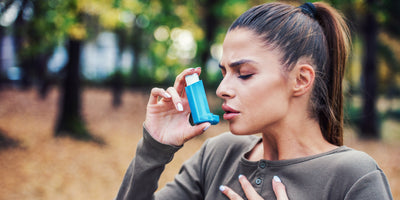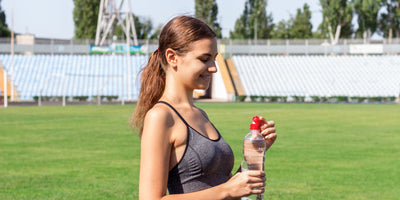
Meeting Nutritional Needs for Vegetarians and Vegans with Hydrate Supplements
Navigating the nutritional landscape as a vegetarian or vegan involves more than just avoiding animal products; it requires a conscientious effort to meet your body's needs for hydration and essential nutrients. This comprehensive guide illuminates the path to achieving optimal hydration and nutrition, highlighting the role of hydrate supplements and strategies to maintain electrolyte balance, all tailored for those following plant-based diets.
Understanding the Importance of Hydration and Nutrition for Plant-Based Diets
The Crucial Role of Water in a Vegetarian and Vegan Lifestyle
Water isn't just a thirst quencher—it's a vital nutrient that plays an integral role in nearly every bodily function. From facilitating nutrient absorption to regulating body temperature and ensuring efficient cellular operations, water is the cornerstone of health, particularly for those following plant-based diets. Vegetarians and vegans may find themselves needing more water due to the high fibre content of their diets, which can increase the body's hydration requirements. Understanding this dynamic is the first step in tailoring a hydration strategy that supports a healthy, plant-based lifestyle.
Nutrition Beyond the Plate: Hydration as a Key Component
While plant-based diets are rich in many nutrients, adherents must carefully consider their hydration status and electrolyte balance to ensure overall well-being. Proper hydration supports digestion, enhances cognitive function, and aids in muscle recovery, making it as crucial as nutritional content. For vegetarians and vegans, this means not only focusing on what's on their plate but also what's in their glass, ensuring they're consuming enough fluids and electrolytes to support their dietary choices and lifestyle demands.
The Science of Hydration: Beyond the Eight-Glasses-a-Day Myth
Understanding How Much Water You Really Need
The old adage of drinking eight glasses of water a day is a simplification that doesn't account for individual variability or lifestyle factors that influence hydration needs. For vegetarians and vegans, hydration requirements can be influenced by diet, activity level, and even the climate they live in. High-fibre diets, common among plant-based eaters, can increase the need for water to help facilitate digestion. Moreover, engaging in regular physical activity or residing in warmer climates can further elevate the body's demand for fluids, underscoring the need for a personalised approach to hydration.
Recognising the Signs of Dehydration
Dehydration can creep up subtly, manifesting through signs that are often easy to overlook until they become more severe. Thirst, surprisingly, is a late indicator of dehydration. Early signs can include fatigue, decreased urine output, dark yellow urine, dry skin, and headaches. For those on a plant-based diet, being attuned to these signals is crucial, as their dietary choices can predispose them to faster fluid loss. Recognising and responding to these early signs of dehydration is essential for maintaining energy levels, supporting digestion, and ensuring overall health.
Electrolytes: The Plant-Based Diet's Best Friend for Hydration
Why Electrolytes Are Essential for Vegetarians and Vegans
Electrolytes are minerals with an electric charge, crucial for many bodily functions, including maintaining fluid balance, muscle contractions, and nerve signaling. For vegetarians and vegans, getting a balanced intake of electrolytes is vital, as these nutrients are often lost through sweat and bodily functions. Plant-based diets, while rich in many nutrients, can sometimes fall short in electrolytes like sodium, especially if one is not mindful of their intake. Including a variety of electrolyte-rich foods or supplements can help bridge this gap, ensuring that hydration goes beyond just water intake.
Plant-Based Sources of Electrolytes
Fortunately, nature offers an abundance of plant-based foods rich in electrolytes. Potassium, vital for heart and muscle function, can be found in bananas, sweet potatoes, and spinach. Magnesium, which supports muscle and nerve function, is abundant in almonds, black beans, and avocado. Calcium, necessary for bone health and muscle function, is present in fortified plant milk, tofu, and kale. For sodium, which should be consumed in moderation, celery and olives can be good sources. Integrating these foods into daily meals can help vegetarians and vegans maintain an optimal electrolyte balance, enhancing hydration and supporting overall health.
Navigating the World of Hydrate Supplements for Plant-Based Diets
The Role and Benefits of Hydrate Supplements
Hydrate supplements can be a game-changer for anyone, especially for vegetarians and vegans looking to maintain electrolyte balance and hydration. These supplements are formulated to replenish fluids and electrolytes more efficiently than water alone, making them an excellent addition to the dietary regimen of those who engage in regular physical activity or live in hot climates. Available in various forms, from powders to effervescent tablets, they offer a convenient and effective way to ensure you're meeting your hydration needs, complementing a well-rounded plant-based diet.
Choosing the Right Hydrate Supplement
When selecting a hydrate supplement, it's crucial for vegetarians and vegans to scrutinise the ingredient list. Look for products that are free from animal-derived ingredients and artificial additives. The best supplements offer a balanced blend of essential electrolytes, such as sodium, potassium, magnesium, and calcium, without excessive sugars or artificial sweeteners. Opting for supplements with natural, plant-based ingredients and those specifically tailored to the needs of vegetarians and vegans can provide the hydration support needed without compromising dietary ethics or health goals.
Enhancing Athletic Performance with Hydrate Supplements
The Importance of Hydration for Plant-Based Athletes
For athletes following a vegetarian or vegan diet, staying adequately hydrated is crucial for peak performance and recovery. Physical activity increases the body's demand for water and electrolytes, as sweat loss accelerates the depletion of essential minerals. Proper hydration helps regulate body temperature, reduce the risk of heat-related illnesses, and ensure muscles function optimally. Moreover, for plant-based athletes, ensuring a sufficient intake of electrolytes is necessary to compensate for the loss through intense workouts, as their diets may naturally have higher water content but not always in the right electrolyte balance.
Choosing Hydrate Supplements for Athletic Endeavors
When selecting hydrate supplements to support athletic performance, vegetarians and vegans should look for products that provide a comprehensive blend of electrolytes, including sodium, potassium, magnesium, and calcium. Supplements designed for athletes often contain higher concentrations of these electrolytes to match the increased loss during exercise. Additionally, opting for supplements with added carbohydrates can help fuel prolonged physical activity and aid in recovery. Natural, plant-based ingredients and the absence of artificial colours, flavours, and sweeteners should be prioritised to align with a health-conscious, plant-based lifestyle.
Hydration Through Foods: Maximising Water Intake with Plant-Based Choices

The Role of Hydrating Foods in a Vegan Diet
Beyond drinking water and using supplements, vegetarians and vegans can significantly enhance their hydration status through their diet. Many fruits and vegetables boast high water content, along with essential vitamins, minerals, and fibre. Consuming a variety of these hydrating foods not only contributes to overall fluid intake but also provides a natural source of electrolytes and nutrients. This approach to hydration is particularly beneficial, as it complements the nutrient-dense, whole-food focus of a plant-based diet, offering a synergistic effect on health and well-being.
Top Hydrating Plant-Based Foods and Recipes
Incorporating hydrating foods into meals and snacks can be both delicious and nourishing. Cucumbers, lettuce, zucchini, watermelon, strawberries, and oranges are among the most hydrating options, with water content exceeding 90%. These foods can be easily integrated into daily meals, from refreshing salads and smoothies to hydrating snacks and desserts. Simple recipes, such as cucumber tomato salads, fruit-infused water, and smoothie bowls topped with fresh berries, not only boost water intake but also enhance the diet with vibrant flavours and textures.
Selecting Vegan-Friendly Hydrate Supplements: What to Look For
Key Ingredients in Vegan Hydrate Supplements
When exploring hydrate supplements suitable for a vegan lifestyle, it's essential to identify key ingredients that support hydration without compromising dietary principles. Look for products that clearly state they are vegan-friendly and check for the presence of electrolytes such as sodium, potassium, magnesium, and calcium. Additionally, supplements containing coconut water powder, natural fruit powders, and sea salt can offer enhanced hydration benefits along with a boost in essential minerals. Avoiding supplements with artificial additives or animal-derived ingredients ensures alignment with vegan values.
The Benefits of Natural and Organic Hydrate Supplements
Opting for natural and organic hydrate supplements can further align with the health and environmental ethics of a plant-based diet. These supplements typically use ingredients that are minimally processed and free from synthetic chemicals, offering a purer form of hydration support. Organic certification also ensures that the products are produced without genetically modified organisms (GMOs) or harmful pesticides, which can be particularly important for those following a vegan lifestyle dedicated to minimising their environmental impact and supporting sustainable farming practices.
Effective Hydration Strategies for Every Day
Building a Daily Hydration Routine
Establishing a daily hydration routine is vital for ensuring consistent fluid and electrolyte intake. Start your day with a glass of water to kickstart hydration after overnight fasting. Carrying a reusable water bottle can encourage regular sips throughout the day, while setting reminders can help maintain consistency. Including hydrating foods at each meal and opting for hydrate supplements when needed, especially before and after workouts or in hot weather, can help vegetarians and vegans meet their hydration needs.
Common Hydration Mistakes and How to Avoid Them
Even with the best intentions, it's easy to fall into hydration pitfalls. One common mistake is relying solely on thirst as an indicator of when to drink; instead, aim for regular fluid intake throughout the day. Neglecting electrolyte balance, particularly for those on a plant-based diet, can lead to imbalanced hydration, so incorporating a mix of water, hydrating foods, and supplements is key. Finally, not adjusting hydration habits in response to increased exercise, hot weather, or illness can lead to dehydration, underscoring the importance of being adaptable and mindful of changing needs.
Summary
- Importance of Hydration and Nutrition: Proper hydration and electrolyte balance are crucial for overall health, especially for individuals following plant-based diets.
- Water's Vital Role: Water facilitates nutrient absorption, regulates body temperature, and supports cellular function. Plant-based diets may increase hydration needs due to higher fibre content.
- Signs of Dehydration: Early signs include fatigue, decreased urine output, and dark yellow urine. It's important for vegetarians and vegans to recognise and respond to these signs promptly.
- Electrolyte Essentials: Electrolytes like sodium, potassium, magnesium, and calcium are vital for fluid balance, muscle function, and nerve signaling. Plant-based foods can provide these important minerals.
- Hydrate Supplements: These supplements offer a convenient way to ensure adequate intake of fluids and electrolytes, particularly beneficial for active individuals or those in hot climates.
- Athletic Performance: Adequate hydration and electrolyte replenishment are key for peak performance and recovery in plant-based athletes.
- Hydrating Foods: Fruits and vegetables with high water content, such as cucumbers and watermelon, can enhance hydration and provide essential nutrients.
- Choosing Supplements: Look for vegan-friendly hydrate supplements with natural ingredients and a balanced blend of electrolytes, avoiding artificial additives.
- Daily Hydration Strategies: Establishing a routine that includes drinking water throughout the day, consuming hydrating foods, and using supplements as needed can support optimal hydration.
- Common Pitfalls: Relying solely on thirst, neglecting electrolyte balance, and not adjusting hydration habits for activity level or climate can lead to dehydration.






